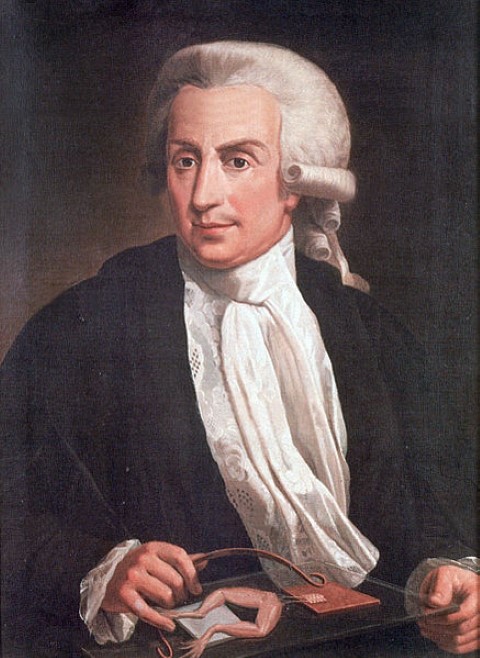
Luigi Galvani (1737 – 1798) was a pioneer of bioelectricity who made important contributions in physics, chemistry, and biology. He was the first person to demonstrate the electrical basis for nerve impulses when he made a dead frogs muscle move when he jolted it with electricity.
Galvani was born in Bologna, Italy and obtained a degree in medicine at the University of Bologna in 1759. After graduation he applied for a position at the university and became a lecturer of anatomist of the university. In the 1770s Galvani had started to become interested in the relationship between electricity and life.
During experiments he conducted, Galvani realized that he could use electricity to make the dissected legs of a frog contract. For example, when Galvani used a scalpel made of steel to cut through the leg of a frog hanging from a brass hook, the leg visibly twitched. Based on his observations Galvani concluded that the body contained a type of electrical fluid which he dubbed animal electricity. He knew that his conclusions would be controversial and he delayed publishing his work until 1791 when he published Commentary on the Effect of Electricity on Muscular Motion.
Some of his scientific colleagues accepted his views, but he received opposition from the Italian physicist Alessandro Volta. Volta believed that it was through the contact of two dissimilar metals, such as the steel in the scalpel and the brass of the hook, that caused the electric current to flow. In response to Galvani Volta invented the Voltaic Pile, the first battery. He realized that the frog’s leg served as a conductor of electricity (electrolyte) and he replaced the leg with brine-soaked paper placed in between to pieces of metal. Volta’s conclusion ultimately proved correct however Galvani was still correct in attributing the muscular contractions to the electrical stimuli. Where Galvani was wrong was in the idea of an inherent animal electricity operating within the body.
Galvani continued to investigate animal electricity until the end of his life. It is his work that inspired Mary Shelly to write her famous work Frankenstein in 1818. Galvani died at his brothers home in December 1798.